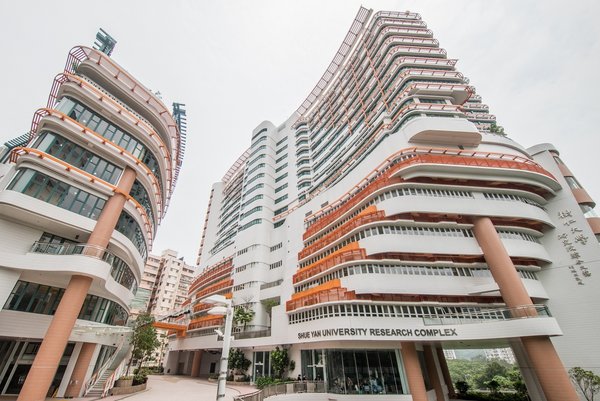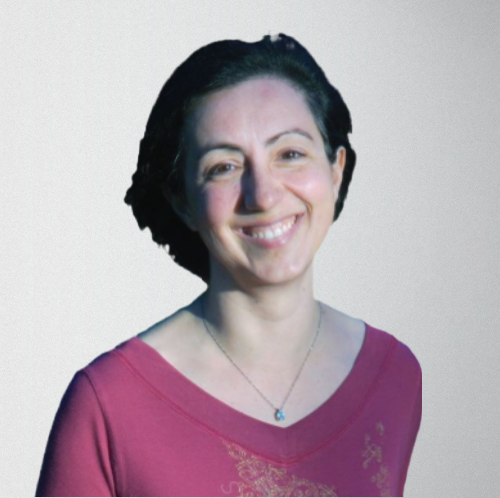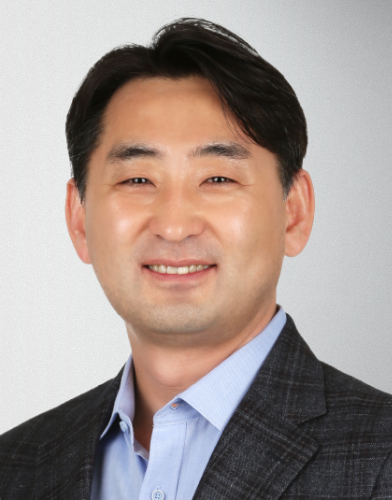ABOUT THE CONFERENCE
The Social Research Centre of Hong Kong Shue Yan University is organizing a conference titled:
“Re-discovering Youths Today: Identity, Subculture, Psychosocial Functioning, and Service Needs”
Details are as follows:
Date: 4 November 2023 (Saturday)
Time: 9:00 am – 6:15 pm (HKT) (Click here to check your time zone)
Venue: Research Complex Low Block, Room 502, Hong Kong Shue Yan University
Mode of meeting: Hybrid mode (Face-to-Face or Zoom)
Zoom link: https://hksyu.zoom.us/j/8284201349
Language: English/Chinese
Registration: Free
Map & Photo of the Venue (Address: 10 Wai Tsui Crescent, Braemar Hill, North Point, Hong Kong)

Conference Organizer:
Social Research Centre, Hong Kong Shue Yan University (HKSYU)
Organizing Committee at HKSYU:
Chair: Prof. Cheung, Yuet-wah, Distinguished Professor, Department of Sociology
Members:
Dr. Cheung, Wai-leung Raysen, Associate Professor, Department of Counselling & Psychology
Dr. Li, Wang-on Alex, Associate Professor, Department of Counselling & Psychology
Dr. Chui, Chi-fai Raymond, Associate Professor, Department of Social Work
Dr. Peng, Zheng-min Kelly, Associate Professor, Department of Business Administration
Dr. Li, Hang, Assistant Professor, Department of Sociology
Dr. Man, Pui-kwan Mikayla, Assistant Professor, Department of Sociology
Research Assistants:
Mr. Cheung, Siu-fung Marco, Social Research Centre
Mr. Xu, Naizan, Social Research Centre
CALL FOR ABSTRACTS & REGISTRATION
Conference Theme
Re-discovering Youths Today: Identity, Subculture, Psychosocial Functioning, and Service Needs
The purpose of the conference is to provide a platform for both local and overseas scholars, agency and educational practitioners, and government officials to exchange their views on youth issues and to collaborate on research enhancement and development of youth services today. Against this purpose, the Conference Organizing Committee invites presentations including, but not limited to, the following sub-themes:
- Youth Identity Development
- Youth Subculture
- Youth Psychosocial Functioning
- Service Needs of Youths
Information about Abstract Submission
Please submit an abstract of not more than 250 words in either English or Chinese by 15 September 2023 to src@hksyu.edu. Please clearly indicate the title, author(s), affiliation(s), and the email address and contact phone number of the corresponding author/presenter on the abstract. Receipt of abstracts will be acknowledged through email. The acceptance of the abstract will be announced on 6 October 2023. Please note that NO full paper is required.
Information about Presentation Arrangement
Please prepare a 15-minute PowerPoint presentation in English. Unless specified, the oral presentation should be in English. Please note that the presentation file is in Microsoft PowerPoint (file extension: pptx) or Adobe PDF format. Please send your PowerPoint to the organizing committee through email: src@hksyu.edu by 29 October 2023.
Each presentation should be within 15 minutes. A 30-minute Q&A session will be held after the end of all presentations in the panel session. The moderator will be responsible for monitoring and adhering to time arrangement of the presentation session.
All interested participants from local and overseas are welcome to register for the Conference. (Online Registration Period: 10 July 2023 – 31 October 2023)
Important Dates about Abstract Submission
| Event | Date |
| Abstract Submission Opens | 10 July 2023 |
| Deadline for Abstract Submission | 15 September 2023 |
| Notification of Abstract Acceptance | 6 October 2023 |
KEYNOTE SPEAKERS

Professor Daniel T. L. Shek, PhD, FHKPS, BBS, SBS, JP
Chair Professor of Applied Social Sciences,
The Hong Kong Polytechnic University,
Hong Kong
Title & Abstract of Keynote Speech:
Strengthening Positive Identity and Psychosocial Functioning in Young People through Positive Youth Development (PYD) Programs: The Project P.A.T.H.S. in Hong Kong and Mainland China
In view of the growing developmental problems in young people (e.g., mental health problems, Internet addiction and egocentrism), professionals and policy-makers are asking how to prevent adolescent problem behaviour and promote holistic development in young people. Based on the positive development (PYD) approach, it is argued that strengthening of adolescent development assets such as positive identity and psychosocial competence can help to promote psychosocial functioning in young people. Hence, many validated positive youth development programs have been developed in Western societies.
In contrast, there are very few validated PYD programs in different parts of China, with the exception of the P.A.T.H.S. Program. With funding from the Hong Kong Jockey Club Charities Trust, we conducted school-based and community-based P.A.T.H.S. programs in Hong Kong from 2004 to 2018, with a research grant of around HK$109 million. Evaluation using different evaluation strategies showed that the program was able to strengthen psychosocial competencies (such as resilience, emotional competence and self-efficacy) and positive identity in the program participants.
Because of its overwhelming success in Hong Kong, we have implemented the project in mainland China with financial support of Tin Ka Ping Foundation. In 2011-2018, we implemented the program in 30+ schools with the participation of 85,000+ students. Students and teachers generally perceived that the program was able to promote student holistic development. Student diaries also revealed that the program built up psychosocial competence and positive identity in the program participants. A quasi-experimental study also showed that the program nurtured psychosocial functioning and positive identity in students. Overall speaking, the P.A.T.H.S. Program is a promising program promoting positive identity and psychosocial functioning in young people.
Biographical Information:
Professor Daniel Shek (PhD, FHKPS, BBS, SBS, JP) is Associate Vice President, Chair Professor of Applied Social Sciences, and Li and Fung Endowed Professor in Service Leadership Education at the Hong Kong Polytechnic University. He is also Advisory Professor of East China Normal University, Honorary Professor of Kiang Wu Nursing College of Macau, Changjiang Scholar and Fellow of the Hong Kong Psychological Society.
During his stay at The Chinese University of Hong Kong, he was awarded two teaching awards. Besides, he has received several QS Reimagine Education Awards: Bronze Award (Ethical Leadership) and the Bronze Award (Social Enterprise) in 2016, Silver Award (Ethical Leadership) and Gold Award (Sustainability) in 2017, and Gold Award (Nurturing Well-Being and Purpose) in 2021. He also received the UGC Teaching Award in 2018.
He is Editor-in-Chief of Applied Research in Quality of Life and a Series Editor of Quality of Life in Asia published by Springer. He was past Consulting Editor of Journal of Clinical Psychology, Associate Editor of the Encyclopedia of Family Studies published by Wiley-Blackwell and Encyclopedia of Adolescent Development published by Wiley. He is Editorial Board member of several international journals, including Children and Youth Services Review and Journal of Adolescent Health. He was named one of the world’s most cited 2% scientists (ranked 30th out of 88,403 Education scientists) by Stanford University and Clarivate in 2022. In the 2023 edition of the Research.com Top 1,000 Scientists in Psychology, Professor Shek ranked #2 in China.
Professor Shek was Chairmen of the Action Committee against Narcotics (2009-2014) and the Family Council (2013-2021). He is Chairman of the Assessment Panel of Public Policy and Strategic Public Policy Research Funding Schemes of Chief Executive’s Policy Unit. He is also member of the Electoral Affairs Commission and Research Grants Council, University Grants Committee, HKSAR.

Professor Elisabetta Crocetti, PhD
Professor of Social Psychology,
Alma Mater Studiorum University of Bologna,
Italy
Title & Abstract of Keynote Speech:
Youth Identity Statuses: Theoretical and Practical Implications
Youth face the crucial task of developing their identities. Process-oriented theoretical models stress the dynamicity of this task and underline that the interplay of identity processes, such as commitment, in-depth exploration, and reconsideration of commitment, is at the basis of identity formation and consolidation iterative cycles. Importantly, specific combinations of these processes allow to distinguish different identity statuses (achievement, early closure, moratorium, searching moratorium, and diffusion) in multiple domains and their peculiar configurations. Youth in these identity statuses display differences in their personality, interpersonal relationships, mental health, and adjustment. Thus, each status, as well as the transition from one to another, has significant implications for youth adaptation to diverse and changing societies.
Biographical Information:
Elisabetta Crocetti is a Full Professor in Social Psychology at the Alma Mater Studiorum University of Bologna, Italy.
Her primary scholarly interest concerns the processes of identity formation in adolescence and emerging adulthood. She is interested in examining how identity is formed and revised over time and which individual (e.g., personality, social-cognitive strategies, anxiety), relational (e.g., family and peer relationships), social (e.g., civic participation), and cultural (e.g., migration) factors influence this dynamic. She is also strongly interested in methodological and statistical issues related to social research, such as cross-cultural validation of measurement instruments, longitudinal data analysis, systematic reviews and meta-analysis.
In 2009 she received the SRIF (Society for Research on Identity Formation) Biennial Best Doctoral Student Research Award; in 2011 she was awarded a Marie Curie grant, and she is now the PI of the ERC-Consolidator grant IDENTITIES “Managing Identities in Diverse Societies: A Developmental Intergroup Perspective with Adolescents” (2021-2026). Through an ambitious research program, the project aims to shed light on how the interactions that adolescents with and without a migrant background have in different spheres of life and socialization contexts affect their identities and their physical, psychological, and social well-being.
She is a member of various scientific associations and President-elect of the European Association for Research in Adolescence (EARA).
She is the Editor-in-Chief of Identity: An International Journal of Theory and Research and Associate Editor of European Journal of Personality.

Professor Sun W. Park, PhD
Professor,
School of Psychology,
Korea University,
South Korea
Title & Abstract of Keynote Speech:
Self-Identity as a Frame of Reference in Life
Self-identity refers to a clearly delineated self-definition based on one’s internalized goals, values, or beliefs. Once internalized, those goals, values, or beliefs provide a sense of purpose and orientation, serving as a guiding framework throughout life. Consequently, individuals possessing a well-defined self-identity tend to prioritize their internal value system over external influences when assessing themselves. This inclination becomes more pronounced as individuals transition from adolescence to young adulthood.
To explore this notion, my colleagues and I adopted a comprehensive approach, blending elements of social psychology and developmental psychology. In Studies 1 and 2, we examined the role of self-identity in the context of upward social comparison and its impact on self-evaluation. In Study 1, participants exposed to an upward social comparison displayed a tendency to assess themselves more critically than those in the control group. However, the influence of this comparison was contingent upon one’s level of self-identity. Specifically, individuals with lower self-identity were more susceptible to the negative effects of upward social comparison.
In Study 2, we probed the potential mediating role of self-threat in the relationship between social comparison and self-evaluation, while also considering the moderating influence of self-identity. Through moderated mediation analysis, we found that individuals with a well-established sense of self-identity experienced reduced self-threat when confronted with upward social comparison. As a result, they reported less negative self-evaluation compared to those lacking such clarity.
Moving on to Study 3, we recruited high school students and explored how the associations between dimensions of identity development and self-esteem evolved across different school years. Our findings revealed that the correlation between positive aspects of identity development and self-esteem was notably stronger among third-year students compared to their first-year counterparts. These results underscore the growing significance of self-identity in shaping self-evaluation as adolescents mature into young adults.
Biographical Information:
Dr. Park was born and raised in South Korea and studied philosophy as an undergraduate at Yonsei University. He already knew that he wanted to spend his life studying humanity and life, but financial constraints compelled him to seek employment to support his education. He served as an air force officer and then worked at three different positions over four years including as a role of a policy advisor to a congressman. During this time, Dr. Park realized that psychology, rather than philosophy, offered a more effective means of addressing his inquiries. Motivated by this realization, he relocated to the United States and enrolled in psychology courses at a community college for three semesters. He went on to earn his master’s degree at the University of Dayton under the guidance of Jack Bauer, where he encountered the concept of narrative identity.
Subsequently, Dr. Park embarked on a journey towards obtaining a Ph.D. at Northeastern University. Despite his enduring passion for narrative identity, his doctoral dissertation centered around the topic of narcissism. It was only after returning to Korea as a professor at Korea University that he delved deeply into the realm of identity research. Presently, Dr. Park’s research focuses on self-identity, examining both self-reported and narrative forms. His particular interest lies in understanding the individual’s internal power in relation to external circumstances. He firmly believes that self-identity serves as the core source of personal strength, enabling individuals to overcome challenging situations. In line with his research pursuits, Dr. Park authored a book titled Psychology of Identity, published by Book 21 in 2020.
PROGRAMME
(For online participants, please click the link https://hksyu.zoom.us/j/8284201349 for Welcoming Remarks, Keynote Speeches, Special Presentation, and Roundtable Discussion; For Panel Sessions, please refer to the links given below at Panel Session Schedules 1 and 2, respectively.)
You may also download a copy of e-booklet here for abstracts of various panel sessions.
| Time (HKT) | Event |
| 9:00 am – 9:30 am | Registration |
| 9:30 am – 9:45 am | Welcoming Remarks
Professor Catherine T. L. SUN Senior Vice President, Hong Kong Shue Yan University |
| 9:45 am – 10:30 am | Keynote Speech 1
Strengthening Positive Identity and Psychosocial Functioning in Young People through Positive Youth Development (PYD) Programs: The Project P.A.T.H.S. in Hong Kong and Mainland China Professor Daniel T. L. SHEK Chair Professor of Applied Social Sciences, The Hong Kong Polytechnic University, Hong Kong |
| 10:30 am – 11:00 am |
Special Presentation: The Youth Identity Status Project: Findings of a Four-wave Longitudinal Study of Youths in Hong Kong SYU Research Team |
| 11:00 am – 12:30 pm | Panel Session 1 |
| 12:30 pm – 1:45 pm | Lunch |
| 1:45 pm – 2:30 pm | Keynote Speech 2
Self-Identity as a Frame of Reference in Life Professor Sun W. PARK Professor, School of Psychology, Korea University, South Korea |
| 2:30 pm – 4:00 pm | Panel Session 2 |
| 4:00 pm – 4:30 pm | Coffee Break |
| 4:30 pm – 5:15 pm | Keynote Speech 3
Youth Identity Statuses: Theoretical and Practical Implications Professor Elisabetta CROCETTI Professor of Social Psychology, Alma Mater Studiorum University of Bologna, Italy |
| 5:15 pm – 6:00 pm | Roundtable Discussion |
| 6:00 pm – 6:15 pm | Closing Ceremony |
*Programme is subject to change without notice
Panel Session 1 Schedule (11:00 am – 12:30 pm, HKT)
|
Panel Session |
1A
Youth Psychosocial Functioning and Well-being |
1B
Youth Identity Formation and Diverse Life Experience |
1C
Youth Learning Experience and Career Choices |
1D Self-control, Gaming Disorder, and Social Media Addictions |
|
Venue / Zoom |
RLB 502 / | RLG 101 / | RLB 302 / | RLB 303 / |
| Moderator | Dr. Alex Wang-on LI | Dr. Mikayla Pui-kwan MAN | Dr. Kelly Zhengmin PENG |
Dr. Hang LI |
| Title & Speaker |
A Moderated-mediation Model of the Differential Influence of Social Networks Services Usage to Life Satisfaction* Dorothy Ching Man FUNG |
Migration Intentions for Development in the Greater Bay Area among Hong Kong Youths: An Ideological Migration Perspective*
Kelvin Ka Wang LAM |
The Relationship Between Study Abroad Experiences and Career Decisions: A Study of International Students in South Korea*
Luis Miguel DOS SANTOS |
Problematic Gaming and Self-control: A Systematic Review and Meta-analysis of Adolescents and Emerging Adults* Yuxi HU |
|
Does Positive Youth Development Predict Academic and Well-being Outcomes? Cross-sectional and Longitudinal Evidence from Filipino Adolescents* Jet U. BUENCONSEJO |
Physicality and Identity: Exploring the Role of Body Cultivation Practices in Youth Identity Formation in Post-social Movements Hong Kong*
Kylie Chiu Yee LUI |
Challenges of Traditional-Age Potential University Students』 University Admission Decision Making Processes: A Study in China
Kaichang LIU |
Self-control Belief and Gaming Disorder: A Reciprocal Model and Gender Differences* Shimin ZHU |
|
|
Visual Communication in Youth Socialization: Using Internet Emotions in WeChat# Jiabao WU |
Understanding the Social Context of School Bullying Behaviours among Middle School Students in China*
Yuanmei DONG |
Career Choices of Senior Translation Students in the AI Age: A Study Based on Social Cognitive Career and Motivation Theory#
Xueyan QIN |
Unpacking the Myth in the Associations Between Self-Control and Gaming Disorder: A Comparison Between Traditional and Random-Intercept Cross-Lagged Panel Model Analyses* Di QI |
|
| Validating the Chinese version of Self- and Social Recognition Scales among young adults#
Sabrina Xuebing SU |
From Competition to Lying Flat: A Qualitative Study Focusing on the Youth of Today#
Yunze LIU |
A Study of Higher Vocational Students』 Digital Competences in the AI Age#
Hangfei ZHAO |
The Role of Stranger versus Acquaintance Online Socializing in the Links between Parental Rejection and Adolescent Social Media Addiction* Yunpeng Bai |
Remarks:
* In-person presentations
# Online presentations
Panel Session 2 Schedule (2:30 pm – 4:00 pm, HKT)
|
Panel Session |
2A
Youth Identity Development in Italy |
2B
Youth Issues and Life Choices in Overseas Countries |
2C
Youth Issues and Mental Health in mainland China |
2D Case Studies and Service Needs of Youths |
|
Venue / Zoom |
RLB 302 / | RLB 303 / | RLG 101 / | RLB 502 / |
| Moderator | Dr. Raysen Wai-leung CHEUNG | Prof. Yuet-wah CHEUNG | Mr. Naizan XU |
Dr. Raymond Chi-fai CHUI |
|
Title & Speaker |
Humans After All? How National and Human Identifications Influence Adolescents』 Ethnic Prejudice# Beatrice BOBBA |
The Role of Autonomy in Emerging Adults』 Successful and Unsuccessful Life Choices: Balancing between Profession and Relationships#
Victoria YEROFEYEVA |
本科畢業生成長型思維對職業決策自我效能感的影響:正念與未來時間洞察力的鍊式中介作用#^
李茜 |
Identity Development in Family Context: Growing Up in a Crisis-ridden Journey with Emotional-cum-Relational Issues*^ Chung Ming CHAN |
|
Finding the Balance Between Different Cultures: A Longitudinal Study About Bicultural Identity Integration in Adolescence# Maria PAGANO |
Feeling Authentic in Everyday Life: From Childhood to Emerging Adulthood#
Victoria YEROFEYEVA |
當代青年生育意願影響因素研究#^
陳璐 |
Understanding Adolescent Mental Health in Hong Kong Through Mass Survey: Findings in 2022*^ Thomas Chak Tong FUNG |
|
|
Educational Identity and Chronotype: Their Longitudinal Associations in Adolescence# Francesca DE LISE |
Leaving Parental Home by Emerging Adults: A Choice or a Side Effect?#
Alexandra BOCHAVER |
當代青年婚戀「冷熱」的巨大反差背景下的婚戀觀質性研究#^
肖立平 |
Strengthening Secondary School Students』 Mental Health Through the Student Gatekeeper Training Programme*^ Stephen Wai Man YIP |
|
|
The Longitudinal Associations Between Sleep Quality and Identity Processes in Adolescents# Valeria BACARO |
The Role of Orientation Week in Meeting the Needs and Concerns of Culturally and Linguistically Diverse Undergraduates: A Case Study in Australian Universities#
Tany Ching Ting KWEE |
時間的政治與資訊性異化:中國城市青少年成長的心理困境*^
鄭婉卿 |
Re-discovering today’s youth: Identity, subcultures, and service needs via a case study focusing on the stress of sophomores from a university#^ Yongchuan CHEN |
Remarks:
* In-person presentations
# Online presentations
^ Presentations conducted in Cantonese/Putonghua
